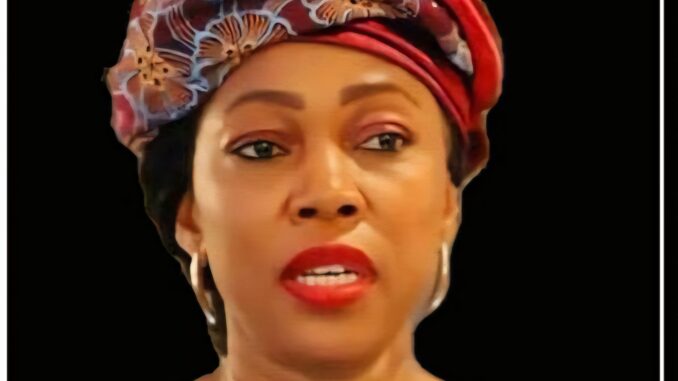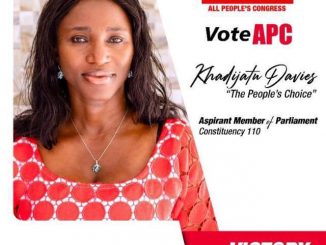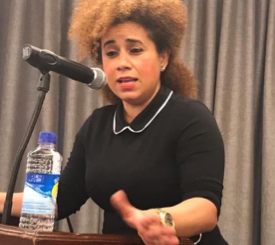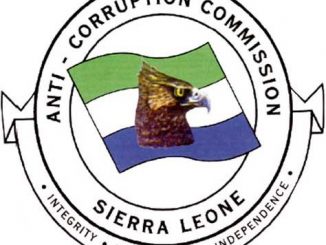
 A closer Look at the Role of the First Lady in Sierra Leone’s Governance:
A closer Look at the Role of the First Lady in Sierra Leone’s Governance:
In democratic societies, governance is structured by clear lines of authority, responsibility, and accountability. Elected officials are mandated by the people to serve within the boundaries of the law, guided by institutions meant to uphold transparency and order. When these structures are compromised especially by unelected individuals assuming undue influence a leadership vacuum is created, and democratic norms are threatened.
Such is the growing concern surrounding the role of the First Lady of Sierra Leone, Madam Fatima Jabbie Bio. While the people of Sierra Leone fully recognize her as the wife of President Julius Maada Bio, she is neither the Vice President nor the Chief Minister, and she does not hold any constitutionally defined executive role. Her increasing involvement in matters of state without formal authority or accountability has created confusion within the SLPP party, disrupted governmental order, and contributed to rising tension among the populace.
A glaring example of this overreach is the ongoing controversy involving Koidu Holdings. Some argue that the First Lady’s intervention was motivated by a desire to advocate for the people of Kono. However, this defense fails to consider the broader implications and the selective nature of her activism. If her intentions are truly rooted in justice and advocacy, why has she remained silent about similar issues affecting workers in other parts of the country? Why has she not raised her voice for the many Sierra Leoneans suffering under poor labor conditions or economic hardship elsewhere?
Even more troubling is her silence during some of the darkest moments of this administration. Innocent civilians, including children, have lost their lives during political unrest and government crackdowns. In those times, the nation looked for compassion and leadership, yet the First Lady never publicly acknowledged or sympathized with the victims. These are the moments where national unity and moral clarity are most needed, and yet her voice was absent.
This selective engagement raises important questions. Why now? Why this particular issue? And why with such intensity? The timing and focus of her actions suggest there may be underlying motives that go beyond public interest. In light of recent revelations including controversies surrounding the occupancy of a council flat in London the public has every right to question whether her current activism is an attempt to divert attention or shield herself from scrutiny.
What is more concerning is the way she has mobilized legal defense and media support, potentially manipulating public opinion and judicial processes. Reports suggest that a group of lawyers has been assembled to represent her in court individuals who are aware of the gravity of the accusations, yet seem more committed to damage control than justice.
This situation is not just about one individual; it is about safeguarding democratic governance in Sierra Leone. No matter how well-intentioned a First Lady may be, she must work through the appropriate authorities and within the confines of the law. Governance cannot be shaped by personal ambition, unchecked influence, or selective outrage.
The people of Sierra Leone deserve leadership that is accountable, consistent, and rooted in service not controversy. As citizens grow increasingly aware of the troubling dynamics surrounding the First Lady’s conduct, it is crucial for the nation’s institutions to respond not with silence or complicity, but with clarity, firmness, and respect for democratic order.
Only then can Sierra Leone truly move forward as a nation built on integrity, justice, and the rule of law.
Sierra Leoneans will never forget this moment and will always remember the sacrifices made by our founding fathers.
Moraygbaleh




Leave a Reply